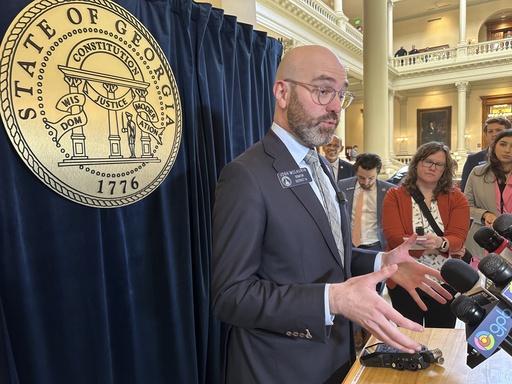The Georgia Senate has endorsed a legislative proposal with a 33-21 vote that would permit lawmakers to veto major regulations imposed by the executive branch. Critics argue that this action has the potential to hinder safety and environmental initiatives, as seen in similar measures adopted in other states. This legislation is a top priority for Lt. Gov Burt Jones, a Republican who is reportedly contemplating a gubernatorial bid in 2026. Jones likened the proposal to Elon Musk’s reform efforts aimed at reducing federal expenditure and oversight, referencing the Department of Government Efficiency. However, the branding tied to Musk has faced resistance in recent weeks, causing some proponents to distance themselves.
The bill’s sponsor, Republican Sen. Greg Dolezal from Cumming, maintained, “This bill is in the spirit of DOGE but functionally it is very different.” Democratic legislators, noting developments in Washington, worry that the proposal could trigger layoffs and reductions in services similar to those Musk advocates for, despite the bill mainly targeting state agency regulations. As such, regulations enacted by state agencies under legislative approval are at risk. State Senator Kim Jackson, a Democrat from Stone Mountain and Senate Minority Whip, criticized the measure, suggesting it might threaten essential programs that Georgians rely on.
With the Senate’s approval, the measure now awaits further discussion in the House. Despite Republican dominance in Georgia’s legislature and governor’s office for more than two decades, supporters of Senate Bill 28 assert it is essential to maintain a check on the executive branch’s rulemaking authority. Dolezal argued the legislation would ensure lawmakers’ involvement in preventing the “administrative state” from carrying out unfavorable actions.
However, opponents see the bill as an expression of hostility towards the government. Democratic Sen. Josh McLaurin from Sandy Springs remarked, “One person’s red tape is another person’s due process,” emphasizing the risk of removing necessary safeguards. Previously, a similar bill suggesting a review of new laws’ impact on small businesses gained Senate approval in 2024 but failed to become law. This year’s version imposes more stringent conditions, stating any regulation incurring over $1 million in economic impact within five years would be stalled until legislative approval.
Some states have experienced setbacks due to similar legislations. Kansas shelved plans to improve its fire safety code, and Wisconsin abandoned efforts to introduce standards limiting PFAS chemicals in groundwater due to the economic caps imposed by their laws. Bill Davis, a senior legal analyst at the Rivers Alliance in Wisconsin, noted these restrictions have made agencies hesitant to propose new regulations. He explained that the laws require agencies to consider only costs, ignoring potential benefits.
Despite the Georgia measure shifting power from the executive branch, Governor Brian Kemp’s spokesperson chose not to comment on the issue. This kind of legislation, identified as the Regulations from the Executive in Need of Scrutiny (REINS Act) in Congress and various states, is part of an initiative pushed across the country by conservative groups like Americans for Prosperity. While legislators in Georgia can contest new laws currently, Dolezal’s proposal would enable any legislator to challenge any regulation with an impact under $1 million. Additionally, it mandates agencies review their rules every four years, proposing a 10% reduction or face reopening all current regulations for public scrutiny and legislative review, thereby stalling any rules with continuing compliance costs.




